 https://www.ironcladservices.com/wp-content/uploads/2024/10/Considerations-for-a-Commercial-Renovation.jpg
1250
2000
AbstraktMarketing
/wp-content/uploads/2022/11/IroncladlogoBW-300x74.png
AbstraktMarketing2024-10-02 12:33:232024-10-02 12:33:27Understanding the Commercial Renovation Process
https://www.ironcladservices.com/wp-content/uploads/2024/10/Considerations-for-a-Commercial-Renovation.jpg
1250
2000
AbstraktMarketing
/wp-content/uploads/2022/11/IroncladlogoBW-300x74.png
AbstraktMarketing2024-10-02 12:33:232024-10-02 12:33:27Understanding the Commercial Renovation ProcessEvery construction project big or small needs a strong foundation. Attention to detail during the preconstruction phase helps build that foundation to guarantee your project’s success.
However, there are several moving parts behind every new construction project. Not only is it time-consuming to account for every detail, but it’s also challenging to know exactly what to include during the preliminary stages. As a result, you might have a few questions, like:
- What is preconstruction?
- For commercial building construction, what phases should I include in the preconstruction process?
- Why is early involvement beneficial in preconstruction management services?
What Is Preconstruction?
Preconstruction is usually the first stage in commercial construction projects and lays the groundwork for future steps. Several stakeholders are involved in this process to ensure your project runs smoothly.
For Commercial Building Construction, What Phases Should I Include in the Preconstruction Process?
During commercial preconstruction services, you should account for the following:
Identifying Project Goals
To kick off the preconstruction phase, start by defining the project’s scope. After all, how can you expect the project to meet expectations if the builders don’t understand your project vision?
That’s why most commercial preconstruction services begin with a discussion between you and key decision-makers in the project. They’ll ask you questions like:
- What size space are you working with?
- What are your expectations?
- What do you want your new building to accomplish?
- What finishes and additions do you want included?
This is your opportunity to make sure everyone’s on the same page. Give as much information as you can, as that’s the best way to create a construction plan aligned with your expectations.
Creating Budgets
After everyone understands your project goals, it’s time to finalize your budget. Meet with your general contractors and discuss the costs of the following:
- A vendor for materials
- Subcontractors if applicable
- Specific services needed
This is the ideal time to solidify your budget, so be sure to evaluate any alternative solutions to help consolidate project costs.
Planning Project Details
With preconstruction services, it’s essential to cover specific details about your building’s design, such as:
- Facility size and layout
- Color, style, and character
- Building materials and finishes
- Internal systems and wiring
From there, architects create blueprints based on your vision. As a helpful tip, it’s highly beneficial to work with a design-build contractor during this stage, as they’ve already established connections with several of the best local architects.
Assembling Construction Teams
Once building plans are finalized, it’s time to assemble a construction crew. This task is far easier with the help of a full-service general contractor because they already have a qualified in-house team at their disposal. If you don’t work with a full-service provider, you’ll need to create and post bid packages to find subcontractors for each stage of the project cycle.
Ordering Building Materials
If COVID-19 taught the construction industry anything, it’s the necessity of proper planning for materials. Over the past few years, new building projects throughout the country struggled to receive materials on time as logistical issues decimated supply chains.
Simply put, the time it takes to receive your materials can make or break your project schedule. That’s why every commercial building project should include material procurement as part of the preconstruction services. Pay special attention to items on backorder, plan accordingly, and make any necessary adjustments.
Applying for Building Permits
Building permits are your local government’s way of ensuring every new construction project complies with building codes. Neglecting these requirements is a safety hazard that could impose expensive fines upon your business.
That’s why applying for local building permits is a crucial step in the preconstruction phase. Virtually every construction project requires permits of some sort, and additional documentation is often needed depending on your local legislation. Generally speaking, for every new construction project in Massachusetts, you need to account for the following:
- Zoning Compliance: For new building projects over 50,000 square feet, Massachusetts requires the applicant to obtain a special permit from the Planning Board.
- Protected Structures: Our state has a rich history with several historic districts, neighborhood conservation areas, and designated landmarks. Most construction projects in these areas are subject to strict guidelines set in place by the Massachusetts Historical Commission.
- Technical Certifications: For new structures over 35,000 cubic feet in volume, you need to provide affidavits from architects and engineers certifying that the project was designed in accordance with state building codes.
- Physical Copies of Construction Plans: You’ll also need to provide two sets of construction plans, specifications, and technical certifications. Additionally, a site plan showing proposed and existing structures, lot lines, required setbacks, established street grades, and finished grades must be prepared and delivered.
Establishing Communication Loops
Lastly, commercial preconstruction services should wrap up by establishing communication loops for future stages. Deliberate communication is vital to a job well done, and the earlier you start collaborating through preconstruction management services, the more successful your project can be.
Preparing permits and paperwork is a hassle—but what if you didn’t have to deal with it? As a full-service general contractor, Ironclad handles your entire construction project from start to finish, including permit requirements. Reach out to the experts and see how we can
Why Is Early Involvement an Essential Aspect of Preconstruction Management Services?
Collaboration among parties is essential during the early stages of your construction cycle, as poor communication causes delays that throw your project timeline off track.
Referred to as the cost-influence theory, this idea proposes that as construction projects advance through each stage, communication among parties gets worse, and you lose the ability to stay within budget.
However, that doesn’t have to be the case. If you openly communicate during the initial stages of your project, it’s far easier to keep your budget on track. That’s why working with a full-service general contractor during the preconstruction phase is so important: they already have the communication loops you need to progress through each phase of the project cycle.
By investing in a design-build method, you streamline project delivery through a single provider with an entire team at their disposal, bolstering communication between every party involved in the construction process.
Looking for a Design-Build Contractor to Handle Your Preconstruction Services?
Need a surefire way to meet your project goals? Good news: Ironclad’s commercial preconstruction services can help. As a full-service contractor, we’re your one-stop shop throughout the whole process.
Our entire team is managed under one roof, eliminating the risks associated with poor planning and communication. Start a conversation to learn more about how a full-service provider can streamline your project.
Share This Post
Read More
 https://www.ironcladservices.com/wp-content/uploads/2024/10/Considerations-for-a-Commercial-Renovation.jpg
1250
2000
AbstraktMarketing
/wp-content/uploads/2022/11/IroncladlogoBW-300x74.png
AbstraktMarketing2024-10-02 12:33:232024-10-02 12:33:27Understanding the Commercial Renovation Process
https://www.ironcladservices.com/wp-content/uploads/2024/10/Considerations-for-a-Commercial-Renovation.jpg
1250
2000
AbstraktMarketing
/wp-content/uploads/2022/11/IroncladlogoBW-300x74.png
AbstraktMarketing2024-10-02 12:33:232024-10-02 12:33:27Understanding the Commercial Renovation Process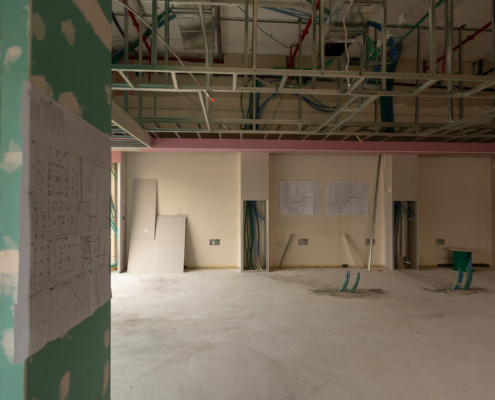
5 Signs You Need a Commercial Remodel
Commercial Construction
Your Start-to-Finish Restaurant Construction Checklist
Commercial Construction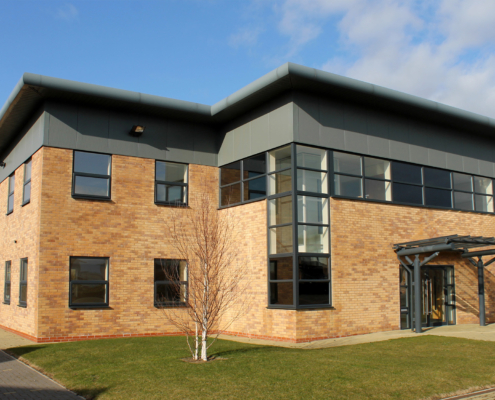
Commercial Building Construction Ideas for Prolonging Your Facility’s Lifespan
Commercial Construction https://www.ironcladservices.com/wp-content/uploads/2024/04/Two-construciton-workers-looking-over-blueprints.jpg
1250
2000
Xander Killebrew
/wp-content/uploads/2022/11/IroncladlogoBW-300x74.png
Xander Killebrew2024-04-25 16:53:362024-08-27 11:44:40Benefits of Design-Build
https://www.ironcladservices.com/wp-content/uploads/2024/04/Two-construciton-workers-looking-over-blueprints.jpg
1250
2000
Xander Killebrew
/wp-content/uploads/2022/11/IroncladlogoBW-300x74.png
Xander Killebrew2024-04-25 16:53:362024-08-27 11:44:40Benefits of Design-Build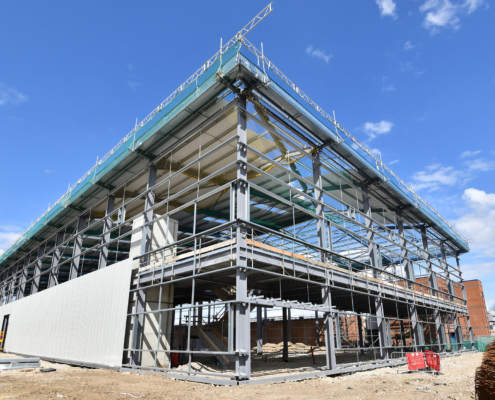 https://www.ironcladservices.com/wp-content/uploads/2024/04/Side-view-of-a-new-commercial-building-construction.jpg
1250
2000
AbstraktMarketing
/wp-content/uploads/2022/11/IroncladlogoBW-300x74.png
AbstraktMarketing2024-04-22 11:13:122024-10-02 12:27:33Commercial Renovations vs. New Builds: Pros & Cons
https://www.ironcladservices.com/wp-content/uploads/2024/04/Side-view-of-a-new-commercial-building-construction.jpg
1250
2000
AbstraktMarketing
/wp-content/uploads/2022/11/IroncladlogoBW-300x74.png
AbstraktMarketing2024-04-22 11:13:122024-10-02 12:27:33Commercial Renovations vs. New Builds: Pros & Cons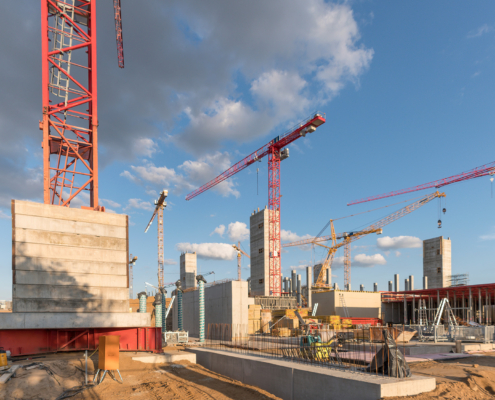 https://www.ironcladservices.com/wp-content/uploads/2024/04/Conquering-Zoning-and-Permitting.jpg
1250
2000
AbstraktMarketing
/wp-content/uploads/2022/11/IroncladlogoBW-300x74.png
AbstraktMarketing2024-04-10 10:09:182024-08-27 11:46:47Your Guide to Construction Permitting & Zoning
https://www.ironcladservices.com/wp-content/uploads/2024/04/Conquering-Zoning-and-Permitting.jpg
1250
2000
AbstraktMarketing
/wp-content/uploads/2022/11/IroncladlogoBW-300x74.png
AbstraktMarketing2024-04-10 10:09:182024-08-27 11:46:47Your Guide to Construction Permitting & Zoning https://www.ironcladservices.com/wp-content/uploads/2024/04/Energy-Efficient-Construction-for-Businesses.jpg
1250
2000
AbstraktMarketing
/wp-content/uploads/2022/11/IroncladlogoBW-300x74.png
AbstraktMarketing2024-04-10 09:43:022024-08-27 11:48:16Energy-Efficient Construction for Businesses
https://www.ironcladservices.com/wp-content/uploads/2024/04/Energy-Efficient-Construction-for-Businesses.jpg
1250
2000
AbstraktMarketing
/wp-content/uploads/2022/11/IroncladlogoBW-300x74.png
AbstraktMarketing2024-04-10 09:43:022024-08-27 11:48:16Energy-Efficient Construction for Businesses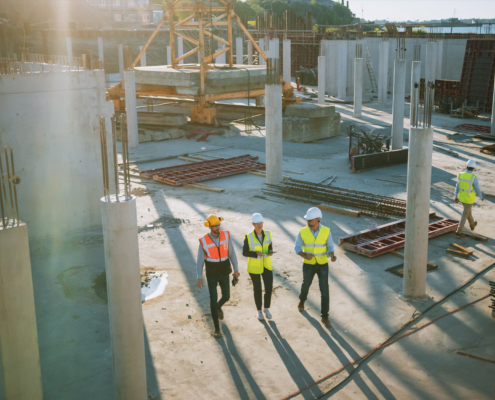
10 Steps Involved in New Construction Services
Commercial ConstructionLocation
Get In Touch
Phone
413.693.1371
Construction Services
About Us
Ironclad Services is a full-service commercial construction contractor headquartered in Springfield, Massachusetts. We bring the same level of precision, safety, craftsmanship, and quality to private sector projects large and small as we do the federal contracting work that our reputation was built on.



